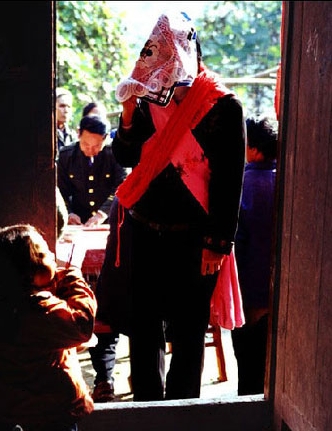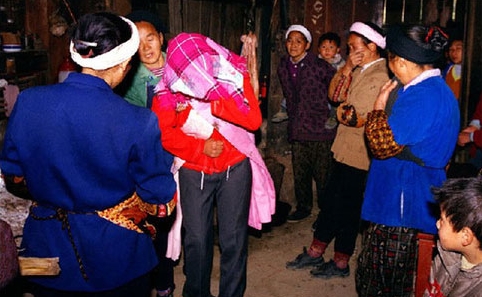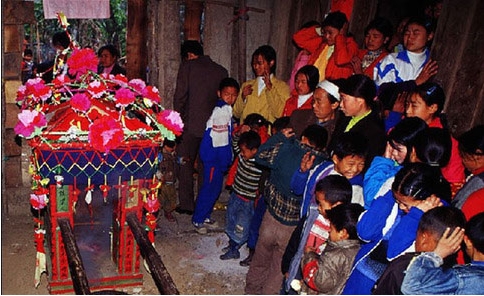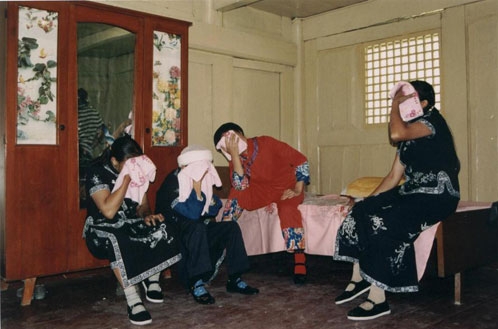
The marriage date for girls of Tujia Ethnic Minority is usually welcomed with crying. According to custom, the new bride should begin to cry half a month or one month before the wedding ceremony. Whether a girl can cry about her marriage has become a criterion to value the girl's ability and virtue.

In order to be regarded as a good girl, the girl begins to study how to cry for marriage when she is twelve years old. Some will invite an experienced person to teach them. When 15 years old, girls will invite each other to match who cries best and teach each other. Some even will discuss methods of crying.

There are songs which are sung when weeping for marriage. These include singing for parents, sister, brothers, the matchmaker and ancestors. When singing the weeping marriage songs, the emotions are fully expressed through the mournful tones. On hearing the vivid and strong words of the song, even a stony-hearted man can't fight back his tears. In fact, girls sing songs before marriage to protest the arranged marriage system under the feudalism and express sentimental attachment to their relatives.

The weeping songs can be sung by one person or two. If one girl sings, she will cry for her destiny, the deep affection to her relatives and the feudalistic marriage custom she suffers under. When two girls weeping together, it is called "sister crying." The bride cries and sings first, and then the other one will sing together with the bride to console her.

It is said that, the weeping marriage custom originated from the unconscionable marriage system in the old times. Girls sang and cried denouncing the marriage system and dreaming of flinging off the chains of the system. Now, although Tujia girls can choose their loves freely, they still cry out of tradition.
